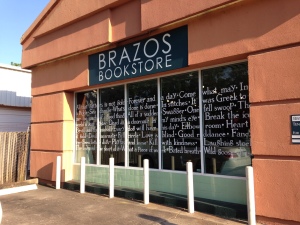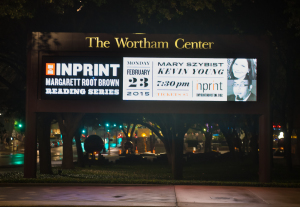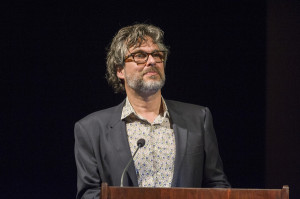Inprint awards more than $200,000 in prizes and fellowships to creative writing students in Houston
March 2, 2016, by Inprint Staff
Who will be the James Baldwin, Jane Austen, Somerset Maugham, or J. D. Salinger of this generation? For Inprint, supporting the next generation of great writers is crucial to helping us fulfill our mission of inspiring readers and writers.
Inprint is proud to be awarding $201,500 in direct support during the 2015-2016 academic year to some of the nation’s top emerging creative writers in Houston. The money is awarded as prizes and fellowships to University of Houston Creative Writing Program (UH CWP) graduate students and a prize for an undergraduate at Rice University.
This year marks Inprint’s highest single-year amount of support for these creative writing students. Since 1983, Inprint has provided more than $3 million dollars in direct support to more than 500 students. Recipients of these fellowships and prizes are changing the face of contemporary literature and have gone on to publish books, win literary awards, serve as educators, and enrich the cultural life of Houston and other communities nationwide. The collaboration between Inprint and the UH Creative Writing Program—a community-based literary arts nonprofit and a university-based creative writing program—is unique in the country, benefiting both the writers and the Houston community. Continue reading







